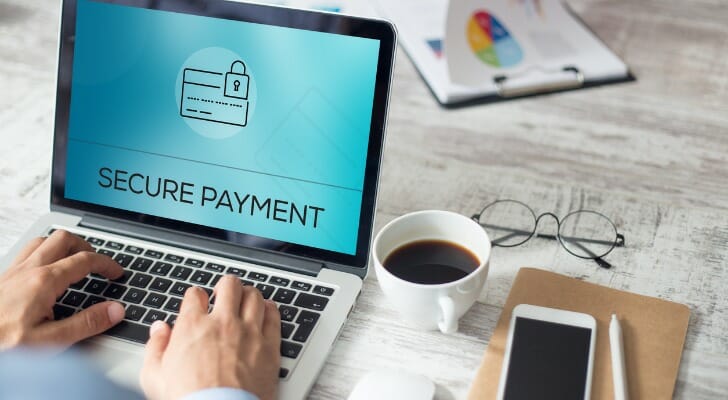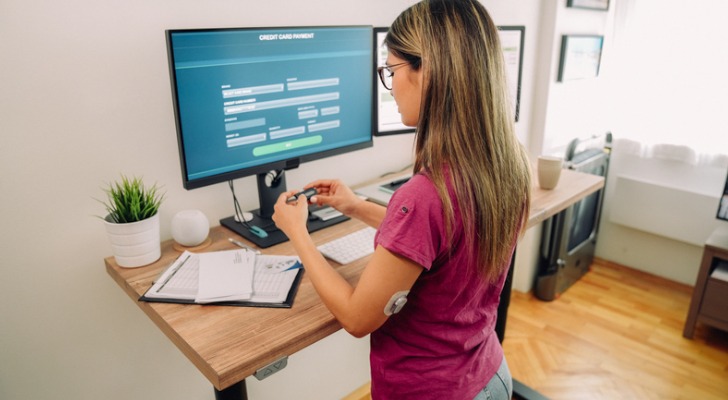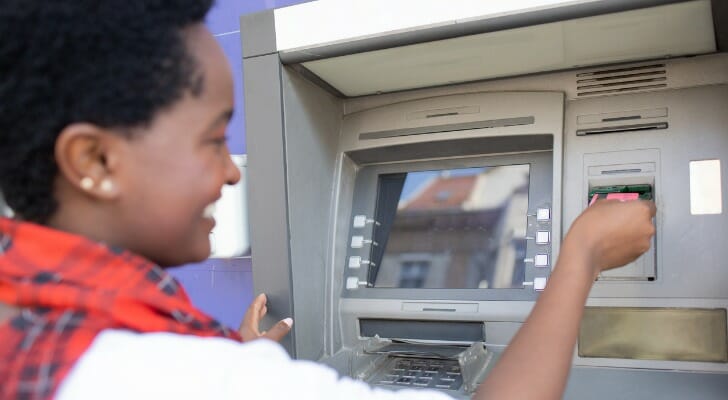Bank fraud is on the rise. According to a recent report from the Bank Administration Institute, 75% of banks reported an increase in fraud in 2024. But there are some things you can do about it. Here are six ways you can protect your money.
If you want to take additional security measures to protect your finances, a financial advisor can help.
Why You Need Banking Security
Bank account fraud is one of the most common financial crimes, with criminals constantly looking for ways to gain access to accounts and make unauthorized transactions. These fraudulent activities can result in large or repeated charges, draining funds and leaving account holders facing unexpected financial losses. Without proper precautions, this kind of fraud can cost thousands of dollars and cause serious damage to a budget.
Fraudulent access doesn’t just threaten your savings—it can also interfere with financial plans, lead to missed payments and overdraft fees and even harm your credit if identity theft is involved. Resolving fraud can take time, and the effects may last well beyond the initial incident. For these reasons, it’s essential to take steps to protect your accounts, use strong security practices, and be aware of potential risks.
Proactively securing your bank accounts can help reduce the chance of unauthorized access and make it easier to spot suspicious activity early.
How to Protect Your Bank Accounts
There are simple but effective steps that you can take to lower the risk of bank fraud. Here are six common steps that could keep your money safe.
1. Check Your Accounts Regularly
Keeping an eye on your checking and savings accounts will help you know when something is wrong. Even accounts that you may not use very frequently must be checked on a regular basis. Balance your checking account each month to make sure all the purchases being debited from your account are actual purchases you made. If something does not seem right, contact your bank immediately.
2. Never Give Out Your PIN to Anyone
While this tip may seem obvious to those of us who have had a checking account for years, it’s not always so obvious to new checking account holders. Your PIN should never be given out to anyone — not even bank tellers. If you’re asked over the phone to give your PIN directly to the person on the other end, don’t! Most banks have an automated system that will ask you to punch in or say your PIN, then connect you to a teller or bank representative. Remind your family members and loved ones they are never to give anyone their PIN.
3. Use Stronger Passwords

Online banking is the fastest-growing sector of banking for scammers and thieves. While online banking provides great convenience, it also makes us more susceptible to theft. One way to ensure your security is to create a password that is strong. Don’t make your passwords too easy by using your birthdate or your child’s name. It’s a good idea to include a series of numbers, letters and symbols in your password to help ensure the security of your accounts.
4. Be Careful Where You Access Your Account
On just about every corner, you can pop into a coffee shop or local fast food place and get free Wi-Fi access. This allows you to get work done outside of the office. However, think twice about using these connections to check your banking account. Remember, these are still public places, and you don’t necessarily know what security measures are in place. Something as simple as someone looking over your shoulder as you log in could let them gain access to your information.
5. Avoid ATMs in Touristy Areas or That Look Out of Place
If you need to use an ATM, it’s safest to choose one you know and that belongs to your bank, avoiding ATMs in tourist spots or locations that seem unusual, since these can be targets for scammers. Credit card skimming is a popular technique for fraudsters who take advantage of these machines by installing third-party devices that read your information. Using your bank’s ATMs not only helps you avoid extra fees, but also lowers the risk of your information being stolen. Staying alert, using strong passwords and monitoring your accounts regularly are simple ways to protect your money as technology and online banking make fraud easier for criminals.
6. Set Up Account Alerts
Many banks let you sign up for text or email alerts for account activity. These notifications can let you know right away if there’s a large withdrawal, a failed login attempt or other unusual transactions. Setting up alerts gives you a faster way to catch fraud and respond before more damage is done.
What Should You Do If Your Bank Account Gets Hacked?
If your bank account gets hacked, the first step is to contact your bank immediately. Let them know about any suspicious activity so they can freeze your account, stop further transactions and begin an investigation. The faster you act, the better chance you have of limiting losses and recovering any stolen money.
Next, review all recent transactions to identify which ones you didn’t authorize. Make a list of these transactions to share with your bank. You may also need to file a police report, especially if large amounts were stolen, or if the bank requests it as part of their investigation process.
Finally, change your online banking passwords and update security settings on your accounts. Consider setting up account alerts to monitor future activity. You may also want to place a fraud alert or freeze your credit reports and check them for signs of identity theft. Taking these steps can help you secure your accounts and prevent more problems.
Bottom Line

Regardless of where you do your banking, it’s important to take precautions and do your best to protect against bank account fraud. Following these tips can go a long way in protecting your money and preparing yourself for any potential threats. You can also work with your bank to see what precautions they take in the event something goes wrong.
Tips for Banking
- Your banking decisions can be big. From deciding where to keep your money to what types of accounts you need to use, these decisions impact your financial future. Working with a financial advisor can help you be proactive about making the right decisions for your unique personal situation. Finding a financial advisor doesn’t have to be hard. SmartAsset’s free tool matches you with vetted financial advisors who serve your area. You can have a free introductory call with your advisor matches to decide which one you feel is right for you. If you’re ready to find an advisor who can help you achieve your financial goals, get started now.
- Contemplating what bank to use for your new checking or savings account? Consider our guide to the best banks in America.
Photo credit: ©iStock.com/Rockaa, ©iStock.com/cnythzl, ©iStock.com/martin-dm
